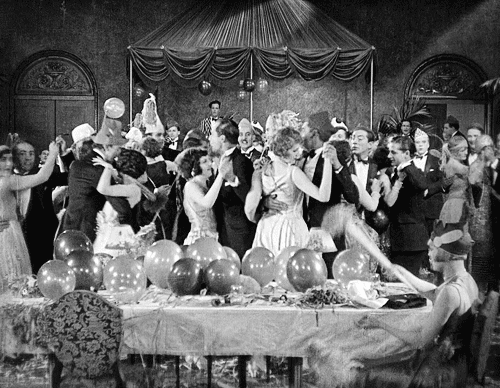As you can guess, the economy went down because there were less brewing or distributing jobs. Crime rose because of gangsters like the famous Al Capone, who sold illegal liquor to clubs. Bribery increased for many government officials meaning that crime was still very much intact. Clubs like speakeasys often held liquor for people to party and drink. Books like The Great Gatsby reflect on this over the top lifestyle. Often times these parties were even more rambunctious because of the illegal liquor being drank. This made parties and clubs more exciting and gave a real vividness to the america night life.

When FDR ran his campaign to become president he promised he would ban the prohibition. This caused him to be elected where he made the 21sth amendment to the consitution, banning the prohibition.

This was the first time an amendment had officially been taken out or repealed and it was a big step in american history. Even though the prohibition was technically finished, there were still some states who didn't repeal it. In fact, the prohibition of alcohol lasted as long as the 1960's for states like Mississippi which didn't effectively ban the prohibition until 1966.
Links :
http://www.history.com/topics/prohibition
https://66.media.tumblr.com/d3f275a5d6165f00984f9636831887b4/tumblr_na57frEdAA1qbuqcio1_500.gif
http://f.tqn.com/y/history1900s/1/W/K/N/1/2696258.jpg
I really like your blog post because we didn't learn very much in depth about prohibition in class when we were learning about the 20s. Something that really interested me is the fact that one of FDR's campaign platforms was the end of prohibition. This made me question who was against prohibition, both in the public and in government. I found that the main organization against prohibition was AAPA, the Americans Against Prohibition Association. Them along with many others as the Great Depression set in believed that prohibition denied jobs to the unemployed and that the sale of alcohol could be a source of income for the government in a troubling time. By the late 1920s, most of the public was against prohibition, and the Great Depression was what is considered as the tipping point in the movement in favor of repealing the 18th amendment. In terms of the government, there was not a huge amount of opposition in the voting for the 18th amendment. In the Senate, 8 out of 38 Republicans voted against it, and 12 out of 48 Democrats voted against it. Additionally, it passed in the House of Representatives by a vote of 282 to 128. Once it was passed through Congress and it was the turn of the states to ratify it, Rhode Island and Connecticut were the only states that did not.
ReplyDeleteSources:
http://www.history.com/topics/18th-and-21st-amendments
http://totallyhistory.com/18th-amendment-to-the-constitution/